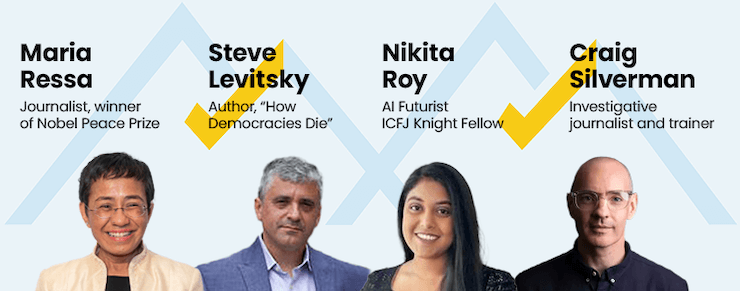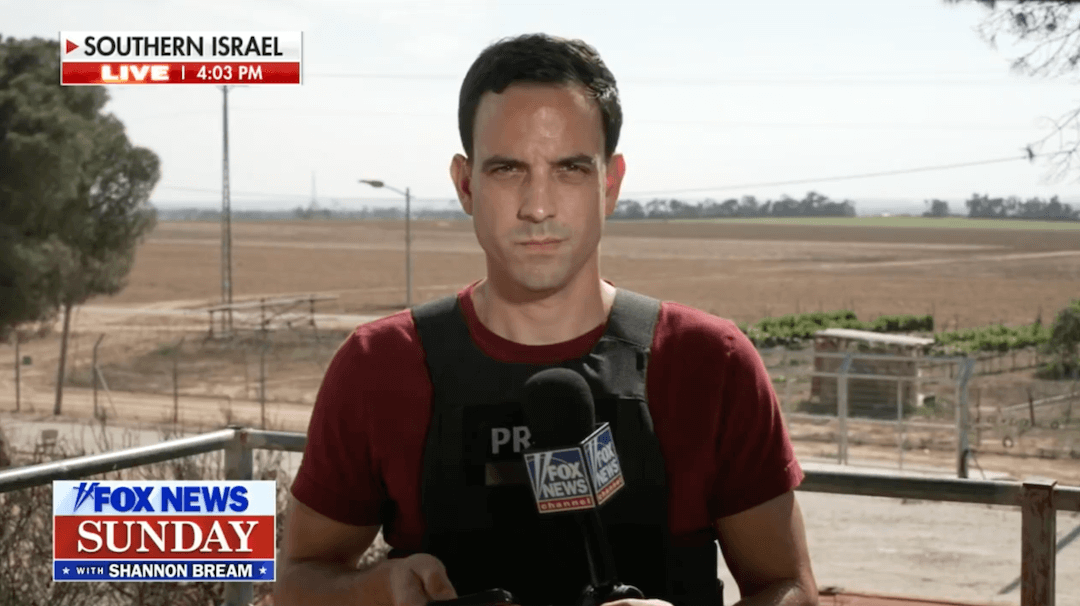Thom Shanker spent decades as a foreign correspondent and national security reporter and editor. Now he teaches the craft to the next generation of journalists.
As the Chicago Tribune’s Moscow bureau chief in the 1980s — he told me before a speaking engagement at Poynter on March 12 — he encountered Vladimir Putin as a KGB operative in East Germany.
“Putin was the perfect spy,” Shanker said; a gray, inconspicuous figure. “The saying was you could miss him in a room with only two people in it.” But Putin was hatching bigger plans and later turned to a threat hiding in plain view, Shanker said, very open about his ambition to restore Russia to its former glory but not really caring about world domination, as some accounts have it.
In due course, Putin became recognized as a belligerent would-be czar, Shanker continued, and has been covered extensively if imperfectly since. Shanker sees both U.S. security policy and much of quick-hit journalism as badly out of focus and slow on anticipation.
He tries to teach the skill of looking around corners to the working reporters and editors who come to the on-the-record meetings he organizes with defense leaders for the Project for Media and National Security, financed by the Carnegie Corporation and associated with George Washington University. Shanker has been director of the organization since 2021.
The COVID-19 pandemic is “the perfect example,” he said, of a crisis unrecognized until just when it hit, leading to the death of a million Americans. Within the national security apparatus, the contagion was a known threat, but that awareness never came near the top of an international agenda.
Other cases in point:
After 9/11, the U.S. embarked on two unwinnable wars on the premise declared by President George W. Bush that Al Qaeda terrorists were an “existential threat” to the United States. The fanatics never were, Shanker said, and the extended war on terror became a distraction from bigger challenges like the rise of China and the persistence of Putin’s Russia.
At the top of his list of hidden national security issues now are climate change (“I’m almost obsessed”) and food.
Impacts of the former include a National Guard fully occupied coping with hurricanes, floods and wildfires in the U.S. and thus unavailable to reinforce armed forces abroad. Not to mention that coastal military bases might end up underwater.
You can trace problems in Africa like piracy and civil wars, Shanker said, to a root cause of pervasive food blight — ruined fisheries and starvation.
Working with today’s national security correspondents and editors, Shanker said, he has all kinds of respect for those who make an investment of years to master the complexity of the topic. Parachute coverage when a crisis occurs works much less well.
His own programs, typically hourlong breakfasts or lunches, function “as a sort of Geneva” — neutral ground useful to both the journalists and guests, who are typically more adversarial in day-to-day dealings.
Shanker spent 24 years of his reporting and editing career with The New York Times. However, thinking back to his Chicago Tribune days, he said, “it’s heartbreaking” that regional papers gradually thinned out and closed their foreign bureaus over a 20- to 30-year period.
At a minimum, the regional papers provided another set of eyes in trouble zones. At best, they broke big stories, like a Newsday correspondent who discovered the Bosnian death camps in 1992 and won a Pulitzer Prize for his work.
Shanker concedes that an explosion of newer outlets gives younger reporters more big opportunities faster. But at the risk of sounding old-school nostalgic, he thinks there was value to the old career path of starting with night cops, moving on to cover the school board, then moving to a larger paper, then paying dues over and over again before advancing to a dream job. That tradition is gone and not coming back.
Even with a new round of industry budget cuts this year and last, Shanker remains an optimist on national security coverage. You still can find great stories, he said, if you dig hard enough and know where to look.







